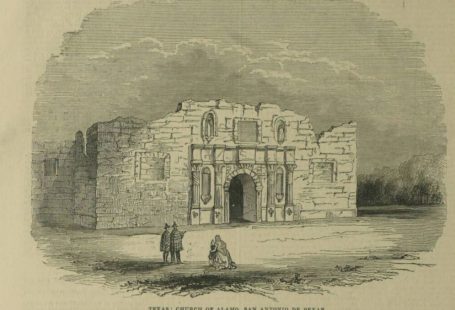As we return from our Christmas break, we would like to wish all of our subscribers and readers a very happy New Year, and to assure them we have not been idle. Indeed, over the past week we have added 67,202 brand new pages to the collection, with the addition of three brand new titles from the north and the south of England.
So read on to discover, in this our first blog of the new year, about our three new titles of the week, which take us from Bexhill to Gateshead via Louth, and also to discover which of our two titles we have updated this week. Meanwhile, you can find out all about the devastating Minnie Pit Disaster, which took place in North Staffordshire towards the end of the First World War, 104 years ago this week.
Register now and explore the Archive
Our first new title of the week is the Bexhill-on-Sea Chronicle, which was established in 1887 as the Bexhill Chronicle, Visitors’ List and East Sussex Guardian. Bexhill-on-Sea was a popular and fashionable seaside resort during the Victorian era, and its new newspaper provided a list of visitors to the town.
Published every Friday by the Bexhill Publishing and Printing Company, the Bexhill-on-Sea Chronicle cost just one penny, its first page filled with advertisements. The rest of the newspaper was filled with local news, for example, featuring the latest from local churches, like the Sackville Road Wesleyan Chapel, as well as news on ‘Boating Accidents at Bexhill.’ It also featured illustrations, such as the ‘New Bandstand on the West Parade,’ as well as reporting on railway timetables and ‘Bexhill Train Alterations.’

Another lively local newspaper to join The Archive this week is the Louth Standard, which was first published in the Lincolnshire market town of Louth on 12 August 1922. With a front page again filled with advertisements, which was still typical of the time, the Louth Standard had columns dedicated to ‘Situations Vacant’ and items ‘For Sale,’ as well as an intriguing section entitled ‘Potato Announcements.’
Filling ten pages, and costing three halfpence, the Louth Standard was a thoroughly local newspaper, representing a wonderful record of local news from the area. For example, you can find within its pages details on ‘Louth Topics,’ reports on local weddings and deaths, as well as a feature entitled ‘Louth Day-By-Day.’ And the newspaper’s second page was often filled with photographs, its subjects ranging from the ‘Louth Show’ to ‘Louth Anglers at Fulstow Bridge,’ from a ‘Louth’s Children Outing’ to ‘Louth’s Veteran Footballer.’

Nor was the Louth Standard solely dedicated to Louth. The newspaper also contained news from nearby Binbrook, looking at the village’s garden fete, as well as containing news from the Boston Guardians, and a look at smuggling in Boston. The Louth Standard took a look too at county wide topics, featuring an article, for example, on ‘Lincolnshire Lifeboatmen,’ and reporting on the Horncastle Petty Sessions, and the Skegness tide timetables.
Our final new title of the week is the historic Gateshead Observer, the first ever newspaper to be published in the town of Gateshead. Established in support of the Whig party in 1837, the Liberal Gateshead Observer circulated in ‘Gateshead and district,’ appearing every Saturday.’ A year after its first appearance, the new newspaper appointed a new editor, namely James Clephan (1804-1888), a British journalist, poet and antiquarian. Clephan would go on to edit the newspaper until 1862, making the Gateshead Observer a huge success. His legacy in the town is recognised by Clephan Street, which was named in his honour.
Winifred Stokes, in her study of the Gateshead Observer, describes the newspaper as ‘enterprising,’ in how it ‘provided coverage of local and national business, financial and political news that rivalled and frequently surpassed that of the various Newcastle papers, and was vastly superior to that of other north-eastern publications.’

In 1849 the newspaper was renamed the Gateshead and County Durham Observer, Gateshead, on the south of the River Tyne historically being in County Durham. And when its editor James Clephan departed in 1862, he became a freelance journalist, writing pieces on local history for the Newcastle Daily and Newcastle Weekly Chronicles. A truly trailblazing local newspaper, the Gateshead Observer sadly did not last into the twentieth century.
Meanwhile, we are delighted to announce that we have added over 10,000 pages to our fascinating title the Liverpool Journal of Commerce, as well as adding nearly 4,000 pages to the London Evening Standard. And we won’t just leave it here for our new pages of the week!
No indeed, over Christmas Santa and his elves added two new titles that you might have missed: the Dromore Weekly Times and West Down Herald, and the Brunswick or True Blue. The lively and thorough Dromore Weekly Times was founded in Dromore, County Down, in 1900 by barrister R.J. Hunter with the aim of being politically neutral. Consisting of eight pages, the newspaper featured a range of special interest articles, focussing in particular on ‘Field and Farm’ with articles including ‘Crop Troubles of Poultry,’ ‘Good Trade for Dairy Cows’ and ‘Garden Gossip.’ The Dromore Weekly Times, which appeared every Saturday, also featured a short story, a column entitled ‘Woman’s World,’ which dealt with such dilemmas as ‘Long Coat or Short Jacket?,’ and a survey of the week’s news.

In 1916 one of R.J. Hunter’s employees, Joseph Lindsay, founded another rival Dromore paper, the Dromore Leader, which would later become simply known as the Leader. Meanwhile, the Dromore Weekly Times ran until 1952.
Our other bonus Christmas title is the Brunswick or True Blue, which was first published on 28 January 1821 at the cost of seven pence. With the motto ‘Fear God, Honour the King,’ the newspaper gained its title from the House of Brunswick, which was more commonly known as the House of Hanover, the German royal house which ruled Britain from the eighteenth century onwards. Indeed, the newspaper professed its ‘affectionate and hearty attachment to the King,’ believing in a ‘conscientious balance between the prerogative of the Monarch and the privileges of the Subject.’

The Brunswick or True Blue would, therefore, ‘scorn scurrility’ and blind devotion to the Monarchy, in its efforts to ‘devote [its] pages to the services of our fellow citizens.’ And within its pages, you can find a ‘Diary for the Week,’ as well as a thorough record of all business conducted at parliament, as well as news from abroad.
The Minnie Pit Disaster – January 1918
As Great Britain entered a fourth exhausting year of war, disaster struck the small village of Halmer End, near Newcastle-under-Lyme in North Staffordshire on 12 January 1918. The Minnie Pit, which was being mined by 248 men and boys, suffered a catastrophic explosion, killing 155 of its workers. The explosion, which was caused by firedamp, a flammable gas found in coalmines, came after two previous ones, the first which had occurred in 1898 and killed the mine’s pit ponies, and the second some three years before, which left nine dead.

But the mine, named after one of the owner’s daughters, Minnie Craig, continued to be worked, as it was so profitable. And the disaster could not have occurred at a worse time, in a country already reeling from the losses of the First World War. But the local Staffordshire community rallied to the aid of the survivors and their families, as is documented in local newspaper the Leek Times, to which we have added new pages over the Christmas period.
The town of Leek put on an array of fundraising events to help raise money for the ‘Minnie Pit Disaster Relief Fund,’ a collection which was organised by newspaper the Staffordshire Sentinel. One of these was a football match held in February 1918 between the Leek Amateurs and the Churnet Valley Football Club, as reports the Leek Times:
On Saturday afternoon last an interesting football match was played on the Alexandra ground, between the Leek Amateurs and Churnet Valley Football Club, on behalf of the Minnie Pit Disaster Relief Fund.

The article records that there was ‘a good attendance’ at the match, which ended up being an ‘exciting game,’ with the Leek Amateurs the victors, scoring 3 goals to the opposition’s none. However, the article does not tell us how much was raised for the Relief Fund, but elsewhere in the Leek Times we can find further detailed examples of the fundraising effort.
Take, for example, the Moorlands’ Opera Society. In a report relating to the finances of the society published on 23 March 1918, the treasurer records how:
…a Special Performance was given on Monday, 28 January, 1918, in aid of the ‘Minnie Pit’ Disaster Fund, whereby a sum of £58 was realised, the whole amount was paid over to the ‘Staffordshire Sentinel’ on the 6 February, 1918.

Meanwhile, on 9 March 1918 the Leek Times reported on the results of a dance and whist drive held by Department 10 of Messrs Brough, Nicholson and Hall for the Minnie Pitt Disaster Fund:
Subs collected by the Scarf Girls, £10 4s 6d; Whist Drive, £15 8s 3d; Dance £30 17s 6d; Total £56 10s. Cheque for the above amount has been sent to the ‘Staffordshire Sentinel.’

The community helped rally around those who had lost loved ones in the Minnie Pit Disaster. But even these generous efforts could not stop survivors and victims’ families from falling into poverty, and this was only to be exacerbated twelve years later, when the Minnie Pit was shut in 1930. And in 1980, the National Coal Board and the local council erected a memorial to the disaster, which reads:
To the memory of those who lost their lives in the fight to extract coal from this mine, Minnie Pit, Halmerend, 1890-1931.
New Titles
Title |
Years Added |
| Bexhill-on-Sea Chronicle | 1890-1895, 1898, 1906, 1911, 1913-1930 |
| Brunswick or True Blue | 1821 |
| Dromore Weekly Times and West Down Herald | 1905-1914 |
| Gateshead Observer | 1849, 1860, 1874-1886 |
| Louth Standard | 1922-1949, 1951-1962 |
Updated Titles
This week we have updated two of our existing titles.
You can learn more about each of the titles we add to every week by clicking on their names. On each paper’s title page, you can read a FREE sample issue, learn more about our current holdings, and our plans for digitisation.
Title |
Years Added |
| Liverpool Journal of Commerce | 1906-1909 |
| London Evening Standard | 1915 |
You can keep up to date with all the latest additions by visiting the recently added page. You can even look ahead to see what we’re going to add tomorrow.






